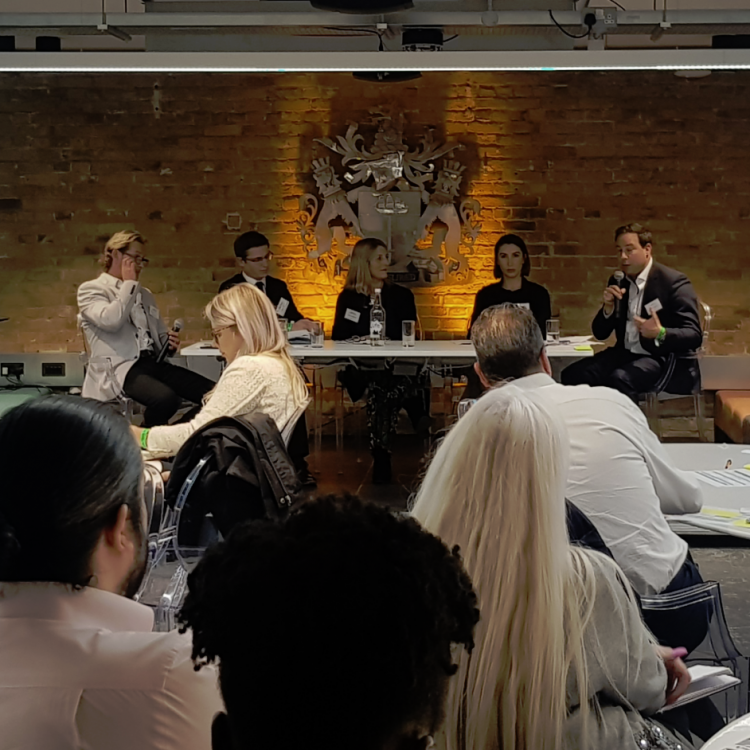Bright future for risk management in new tech world

Risk professionals who think in a strategic, commercial way and learn appropriate new knowledge and skills can look forward with confidence to the changes of the New World. That was one of the main conclusions from Airmic's first Academy Day held at the Aviva Digital Garage on September 13. The inevitable disruption will mean an enhanced role for risk management. Mark Baylis reports.
The first two speakers, techUK CEO Julian David and Fujitsu's director of strategy David Gentle, left us in no doubt of the pace of change. Julian David pointed out that, while it took Facebook 4.5 years to reach 50 million users, Pokemon Go achieved this level of penetration in just nine days.
We are in the middle of a revolution powered by data, he said. "There are things you need to understand and react to…. Everything is possible now to do in a digital way."

He painted a fundamentally positive picture, with lots of jobs generated by AI to replace those that disappear, but he emphasised the need for people to retrain and refocus to take advantage of the opportunities.
The importance of trust
When it comes to risk management, he stressed the need to ensure that everything companies do has built-in security at the outset. A key objective must be to retain the trust of your stakeholders, especially your customers: "Trust is something you need to value and preserve."
Incidents like the recent technology failures at BA, TSB and TalkTalk can do more damage than almost anything else, he said.
You ain't seen nothing yet
So where will we be in ten years' time? No one knows the answer to that question, he said. But clearly things will be very different from today, as was made clear by David Gentle of Fujitsu and his introduction to Quantum computing. This new technology has yet to arrive but is coming down the track, he said. It does away with binary coding and uses Q-bits instead. In simple terms, it will be possible for computers to crack in a matter of seconds complex problems that might currently take years to resolve. They will also do things like unlocking encrypted codes in the blink of an eye lid.
Artificial intelligence and blockchain
He went on to discuss the implications of two other disruptive technologies, AI and Blockchain, giving practical illustrations of what they mean in practice. A Danish wind turbine manufacturer uses AI to inspect highly sensitive 75-metre blades in a fraction of the time and with greater reliability than engineers. And Blockchain will change how we make transactions, eliminating third parties (with huge implications for financial services) and driving down transactional costs.
"Not scary"
Like the previous speaker, he stressed the need to maintain trust, being seen to be socially responsible and to understand data. Data, he said, will be what connects businesses and enables them to offer services to customers.
He reassured the audience that the future "is not scary, it’s what you make it!"
Julia Graham, who chaired the day, predicted we live and work in "incredibly exciting times" but that "we will all have to learn new things – and keep learning."
Will corporate insurance still be relevant in the new data-driven world? The panel debate produced widely differing responses.
The digital age will require a revised approach towards governance - click here for the thoughts of three experts who spoke at the seminar.
Julia Graham, who chaired the Academy day, predicted "incredibly exciting times" but that "we will all have to learn new things."
Key take-home points included:
- Prepare and plan in advance
- Know who the response team will be, and keep it small
- Bring in your legal team at an early stage
- Protect your CEO
"Everything has changed, but nothing has changed," declared Airmic CEO John Ludlow by way of conclusion of this highly successful event.
The technical principles of risk management remain constant, but the context in which they are applied and the knowledge, tools and techniques risk professionals need are changing. "Emerging risks are typically less predictable and tangible” and he reminded us that “these risks are coming at us faster and faster than ever before."
Members are also encouraged to read the 2018 Roads to Revolution report produced ahead of the Annual Conference.
